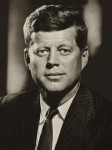
John Fitzgerald Kennedy (1917-1963) was the 35th president of the United States, serving between January 1961 and his assassination in November 1963. Though his presidency was brief, it spanned several critical Cold War events. John F. Kennedy was born in 1917 to a large Irish-American family (he would eventually have eight siblings, including fellow politicians Robert and Edward ‘Teddy’ Kennedy). Kennedy had an ideal pedigree for high office. He was Harvard-educated, graduating in 1940 with a degree in international studies. In 1939 he travelled extensively through Europe, even spending brief periods in Nazi Germany and the Soviet Union. His father, Joseph Kennedy, served as ambassador to Great Britain in the late 1930s; the younger Kennedy was an interested spectator in the British House of Commons immediately after the outbreak of World War II. Kennedy was also a military hero. He joined the US Navy after the bombing of Pearl Harbour and served as a patrol boat commander in the Pacific. When his boat was sunk by a Japanese destroyer, Kennedy single-handedly saved the lives of several men, a feat for which he was decorated.
Kennedy was elected to the House of Representatives in 1946, followed by a successful run for a Senate seat six years later. By the mid-1950s Kennedy was a potential candidate for the US vice-presidency, despite his youth and his family’s Roman Catholicism (many Americans still harboured some anti-Catholic sentiment). In July 1960 Kennedy received the Democratic Party’s nomination as president for that year’s election. Kennedy proved himself an energetic campaigner, capable of delivering articulate, witty yet optimistic speeches. He answered questions about his youth, inexperience and Catholicism with clear and convincing arguments. On the latter issue, for example, Kennedy told a group of Protestant churchmen that he was “not the Catholic candidate for President. I am the Democratic Party candidate for President who also happens to be a Catholic. I do not speak for my Church on public matters, and the Church does not speak for me”. Kennedy’s performance in a series of televised debates, where he prevailed over Republican candidate Richard Nixon, was also instrumental in his success.
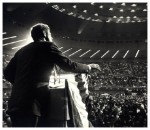
Kennedy was elected to the United States presidency in 1960, in one of the narrowest election results in American history. He became the 35th president, the youngest man to hold the office and the first – and so far only – Catholic. His rise to the presidency triggered an exaggerated fascination with Kennedy and his family, fuelled by the media and a public craving for more pictures, information and gossip about the ‘first family’. Kennedy’s youth, good looks, Massachusetts drawl and charming wit endeared him to many Americans. The fashions of his beautiful wife Jacqueline drew the interest of American women. During Kennedy’s thousand days in office, the White House became what one journalist described as ‘Camelot’.
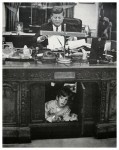
Beyond the public glamour and youthful idealism of his presidency, Kennedy remained a stringent anti-communist. As a young congressman Kennedy had criticised the Truman administration for allowing both China and North Korea to fall into communist hands. Like others in his family, Kennedy was friendly with and supportive of communist witch-hunter Joseph McCarthy (something that both helped and hindered his public image). Kennedy also backed US intervention in Korea, Berlin and other theatres of the Cold War. His election campaign in 1960 was filled with promises to be “tough on communism”. During his inauguration speech, Kennedy reiterated the Truman Doctrine, promising the world that America would assist any nation under threat of communist takeover:
“Let every nation know, whether it wishes us well or ill, that we shall pay any price, bear any burden, meet any hardship, support any friend, oppose any foe, in order to assure the survival and the success of liberty. This much we pledge – and more. To those old allies whose cultural and spiritual origins we share, we pledge the loyalty of faithful friends… To those new States whom we welcome to the ranks of the free, we pledge our word that one form of colonial control shall not have passed away, merely to be replaced by a far more iron tyranny. We shall not always expect to find them supporting our view. But we shall always hope to find them strongly supporting their own freedom – and to remember that in the past, those who foolishly sought power by riding the back of the tiger, ended up inside.”
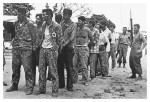
Kennedy was determined to back these promises with action. In April 1961 he authorised Operation Zapata, a clandestine mission to overthrow Cuban leader Fidel Castro. Though the operation had been drawn up by the CIA and the US military during Eisenhower’s presidency, Kennedy gave it final approval to proceed. Zapata would be conducted by around 1,500 expatriate Cubans, exiles since Castro’s rise to power. They were recruited and trained by CIA agents, outfitted with American equipment and provided with US air and naval support. Their invasion, which began on April 17th, was a disaster from the outset. Poor weather and human error were factors, as well as Castro and his forces having prior knowledge of the operation. Kennedy took final responsibility for what became known as the Bay of Pigs fiasco, though privately he was furious at the CIA and its bungling. For the rest of his time in office, the president remained cautious and sceptical about advice and recommendations provided by both the military and the CIA.
Both Kennedy’s election and the blundering Bay of Pigs campaign delighted Moscow. Nikita Khrushchev and other Soviet powerbrokers perceived the new president to be young and weak, unable to withstand pressure, either from the Soviet Union or the military ‘hawks’ in Kennedy’s own administration. When the two leaders agreed to a summit in Vienna in July 1961, Khrushchev was determined to gain the upper hand over the inexperienced Kennedy. Instead, the grizzled Soviet leader found the young president a tougher and more determined negotiator than he expected. Kennedy was especially steadfast in his support for West Berlin; Khrushchev repeated his threat to leave the fate of Berlin entirely to East Germany, but Kennedy called his bluff. The two men left the summit still at loggerheads over Cold War issues but with a newly formed personal respect for each other.
“The Cuban missile crisis was a global event, unfolding simultaneously across 24 different time zones. The plot is simple enough: two men, one in Washington, one in Moscow, struggle with the spectre of nuclear destruction. But it is the subplots that give the story its drama. Minor characters sometimes threaten to take over the narrative, but it is worth remembering that any of these subplots could have become the main plot at any time. The issue was not whether Kennedy and Khrushchev wanted to control events; it was whether they could.”
Michael Dobbs, historian
Kennedy’s leadership was further tested by the Cuban missile crisis in October 1962. He approached this crisis with a calm resolve, gathering experts and government leaders into an ‘executive committee’ to analyse the situation and find possible solutions. Knowing that US aggression would necessitate a Soviet response, which may lead to a nuclear conflict, Kennedy resisted calls for airstrikes or a military invasion of Cuba. The Cuban crisis was eventually eased with a secret deal between the White House and the Kremlin. Despite his determination to avoid war with the USSR, Kennedy’s anti-communist rhetoric and policies endured. He acted to limit the spread of communism in South and Central America, while the number of American personnel in Vietnam increased twenty-fold during his presidency. Kennedy also established the Peace Corps, an organisation to help young college-educated Americans undertake volunteer work in poor or developing nations; this program continues today in more than 70 countries.
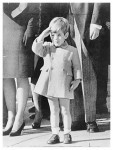
Sadly, Kennedy’s presidency is best remembered for its horrific end. In November 1963 Kennedy made an official visit to Texas, accompanied by his wife Jacqueline and vice president Lyndon Johnson. While the presidential party was riding through the streets of Dallas in an open-top motorcade, Kennedy was shot in the lower neck by a high-powered bullet. As he lurched forward in pain, another bullet tore into his skull, killing him almost instantly. The alleged gunman, Lee Harvey Oswald, was arrested and charged within hours. Oswald never faced trial: he was himself gunned down by a local businessman just days later. The public assassination of a young and charismatic leader shocked the world and cast the US into weeks of grief, mourning and introspection. The perpetrators and motives for the Kennedy assassination have never been definitively identified. Kennedy’s murder has been mired in conflicting evidence and conspiracy theories about whether Oswald acted alone or whether he was a decoy or ‘patsy’ for another party. Some of the people and groups accused of Kennedy’s assassination at various times include Cuban leader Fidel Castro, Cuban expatriates, the CIA and FBI, the KGB, the US military, the Mafia, American business interests, lone wolf political extremists, the Ku Klux Klan, even vice president Lyndon Johnson.
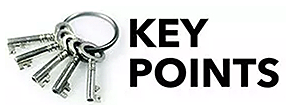
1. John F. Kennedy was the scion of a powerful Catholic family from New England. His father Joseph Kennedy was a successful businessman and former ambassador to England.
2. Kennedy entered politics after decorated service in the US Navy during World War II. Fourteen years later he declared himself a candidate for the US presidency.
3. Kennedy narrowly defeated incumbent vice president Richard Nixon in the 1960 election. Articulate, charismatic and with a young family, Kennedy’s presidency attracted much public interest.
4. In early 1961 Kennedy authorised a CIA plan to overthrow the Castro regime in Cuba through an invasion via the Bay of Pigs. The failure of this mission caused him significant embarrassment.
5. Kennedy was a fervent anti-communist who sought to limit the spread of communist in both Europe and Asia – an attitude that brought him into conflict with Soviet leader Nikita Khrushchev.
Content on this page is © Alpha History 2018. This content may not be republished or distributed without permission. For more information please refer to our Terms of Use.
This page was written by Jennifer Llewellyn and Steve Thompson. To reference this page, use the following citation:
J. Llewellyn et al, “John F. Kennedy”, Alpha History, accessed [today’s date], https://alphahistory.com/coldwar/john-f-kennedy/.
